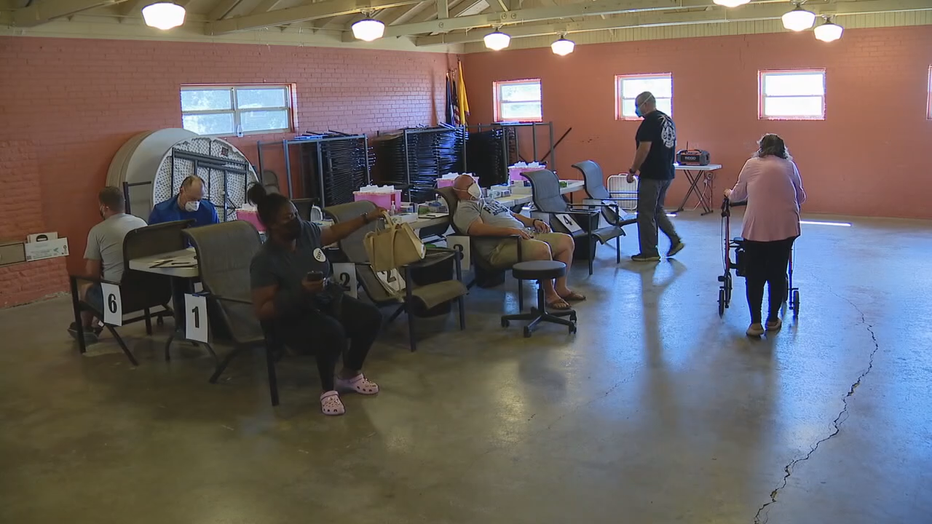New monoclonal antibody treatment appears effective against omicron variant
New monoclonal antibody treatment appears effective against omicron variant
Early data shows a newer monoclonal antibody treatment, Sotrovimab, may be effective against the omicron variant.
FERRIS, Texas - Out of the three antibody treatments approved to treat COVID-19, only one appears to work on omicron.
Providers across the country and in North Texas are scrambling because it's in such short supply and some have already run out.
Early data shows a newer monoclonal antibody treatment, Sotrovimab, may be effective against the omicron variant.
"The new drug, that's kind of I don't want to say, replacing Regeneron, but being brought into the picture to also aid has about an 80 percent efficacy against omicron, whereas Regeneron only has about a 30 to 40 percent efficacy," said Brooks Williams, Ferris City Manager.
RELATED: Omicron variant less likely to require hospitalization, studies show
City leaders in Ferris are expecting to get almost 100 doses for their monoclonal antibody treatment center soon. But as they’ve seen before with new therapeutics, they are unsure when they’ll be getting any more from the state.
"Why are we continuing to have the same issue over and over and over? And again, I'm going to go back to, I think, supply chain, and I think availability has become the excuse for incompetence. We have the drug. The drug is available," Williams said.

In recent weeks, the center has seen an uptick in demand for monoclonal antibodies, treating about 160 people a day with therapeutics. Other centers around the North Texas are already booking appointments well past Christmas.
Ferris city officials are concerned with not having supplies shipped out soon enough to combat a rise in omicron cases.
"We have the ability to fight this, to fight this virus, and we have the drugs to do it, but we aren't planning properly," Williams said.
MORE: COVID-19 coverage
The Department of Health and Human Services is sending out over 55,000 doses of Sotrovimab across the country and Texas is getting about 2,700 of those doses. Another 300,000 doses will be available in January.
Medical experts say getting vaccinated remains the best first line of defense against the virus, because it’s unclear how each person will respond to any treatment options once they’re already infected.
"I think a lot of people right now during the Christmas holidays, they're thinking, oh, we can gather. We can. We don't have to worry there's drugs that will treat it, what have you - that's not the case," said Jon Albrecht, VP, Chief Pharmacy Officer, Methodist Health Systems.
RELATED: Dallas County to keep Dallas College COVID-19 testing sites open through January

